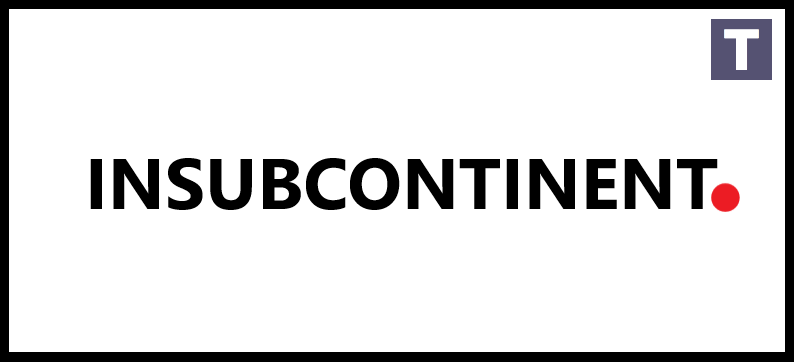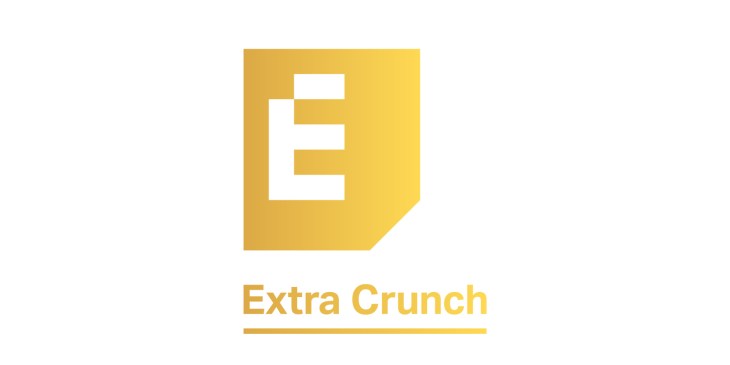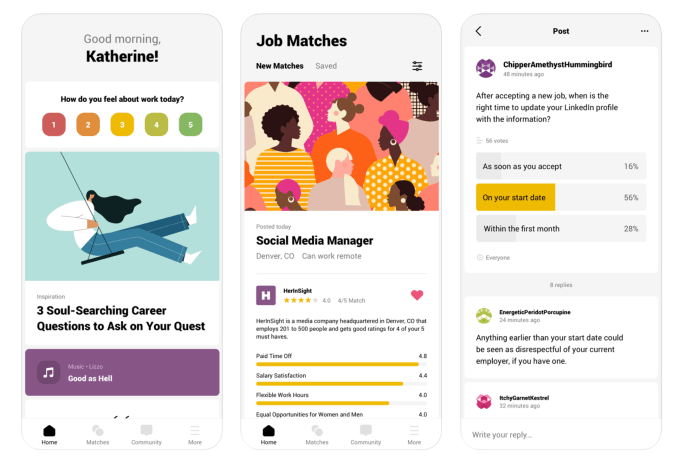Music
Trailers
DailyVideos
India
Pakistan
Afghanistan
Bangladesh
Srilanka
Nepal
Thailand
Iraq
Iran
Russia
Brazil
StockMarket
Business
CryptoCurrency
Technology
Startup
Trending Videos
Coupons
Football
Search
Download App in Playstore
Download App
Best Collections
Technology
Uber is walking back its annual guidance for 2020 due to the COVID-19 pandemic.
Update: This article was corrected to reflect that the guidance was for 2020, not an update that would include the fourth quarter adjusted EBITDA profitability target. Uber CEO Dara Khosrowshahi said earlier this year that the company planned to make an operating profit by the final quarter of 2020. That shouldn&t be confused with annual guidance.
Uber said Thursday it was withdrawing its 2020 guidance for gross bookings, adjusted net revenue and adjusted EBITDA, which were provided on February 6, 2020 during the companyearnings call. The companyprevious 2020 guidance was gross bookings between $75 billion and $80 billion, adjusted net revenue $16 billion to $17 billion and an adjusted EBITDA loss of between $1.45 billion and $1.25 billion. Uber did not provide new guidance for 2020.
&Given the evolving nature of COVID-19 and the uncertainty it has caused for every industry in every part of the world, it is impossible to predict with precision the pandemiccumulative impact on our future financial results,& Uber said in a statement.
Uber also warned that it expected an impairment charge of between $1.9 billion and $2.2 billion because of declines in value on some of its minority equity investments. Uber has minority stakes in Didi, Grab, Yandex.Taxi and Zomato, according to its latest annual report. The one-time charge is not expected to impact Uberfirst-quarter adjusted net revenue, adjusted EBITDA, cash and cash equivalents or short-term investments, the company said.
Uber also used Thursdaychange in guidance to highlight initiatives it launched in response to the COVID-19 pandemic, including a financial assistance program for drivers and delivery people.
Uber said it plans to account for this program as Contra Revenue, which will likely reduce GAAP revenue by an estimated $17 million to $22 million in the first quarter and an estimated $60 million to $80 million in the second quarter. Uber will exclude the impact of certain COVID-19-specific expenses from Adjusted Net Revenue and from Adjusted EBITDA to &help investors assess the impact of COVID-19 on our financial position.&
The company has scheduled its first quarter earnings call for 1:30 pm PT May 7.

- Details
- Category: Technology Today
Read more: Uber takes out 2020 guidance
Write comment (95 Comments)
We&re excited to announce that Extra Crunch membership is now available for readers in Puerto Rico, Guam and American Samoa.
You can sign up here.
Extra Crunch is a membership program from TechCrunch that features market analysis, weekly investor surveys and how-tos and interviews on growth, fundraising, monetization and other work topics. Members can save time with access to an exclusive newsletter, no banner ads or video pre-rolls on TechCrunch.com, Rapid Read mode and our List Builder tool.
Committing to an annual and two-year plan will save you a few bucks on the membership price and unlock access to TechCrunch event discounts and Partner Perks. The Partner Perks program features discounts and savings on services from AWS, DocSend, Typeform, Zoom and more.
You can sign up or learn more about Extra Crunch here.
Thanks to everyone that voted on where to expand next. If you haven&t voted and you want to see Extra Crunch in your local country, let us know here.
- Details
- Category: Technology Today

Food-delivery platforms are on the front lines during the coronavirus crisis, with major spikes in demand as communities are confined at home, likely with more time to cook than usual. And while some restaurants have opted to shut down, others have turned to takeout as a lifeline. Yet physical contact between suppliers, couriers and customers must be more tightly managed than ever to reduce the risk of spreading COVID-19.
The gig economy has also come under renewed scrutiny due to a lack of worker protections that have left many facing a stark choice between earning a living or sheltering in place. In the best of times, operating a delivery platform is a balancing act — and these are certainly not the best of times.
We talked to Delivery Hero CEO Niklas Östberg to find out what helearned about managing a global logistics business in the midst of a pandemic.
The Berlin-based company operates a variety of delivery brands across more than 40 markets and 300+ cities globally, employing 22,000 people directly — with a much larger army of self-employed platform workers who hit the streets and make the actual deliveries.
Food remains a core focus — Delivery Hero says it has some 500,000+ restaurants on its platform, making it the largest global food network outside of China — though in recent years it has branched out into other areas, including groceries and pharmaceuticals. An expansion thatproven to be timely.
This interview has been edited for length and clarity.
TechCrunch: How is the coronavirus impacting your business?
Niklas Östberg: It has an enormous amount of impact in different ways and different regions. We are heavily impacted in some areas, in some a little bit less. In some we have positive impact and in some negative.
What goes for almost everyone except for those who are under complete curfew is that the number of new customers have significantly increased.
We have a lot of new customer segments who didn&t order food before — they now urgently need food and they&ve realized the value of food delivery. And of course there are some [existing] customers who have changed their behavior — now they might not need it as much as before. But definitely one thing that is true for almost every market is that we get a lot of new users and we get a lot of new restaurants.
- Details
- Category: Technology Today
Read more: Shipment Hero CEO shares what he's discovered managing logistics throughout a pandemic
Write comment (99 Comments)Whenever a system bursts out, companies emerge to take on its reach by building their product or services atop it. It happened with Twitter and facebook as well as Slack. Now, it&& s occurring with Zoom, the video clip conferencing firm that took the world by storm earlier this year as the coronavirus sent individuals around the globe inside your home as well as right into self-imposed seclusion. It&& s not a brand-new trend. A lot of business are marketing their items through the Zoom Application Marketplace, which released in the loss of 2018 and also now includes 18 pages of service providers. However Grain, founded in 2018 in San Francisco, is amongst the very first to build its whole business around it, at least as a beginning factor. What is that service? According to founder as well as Chief Executive Officer Mike Adams, the concept is to catch web content in Zoom calls that can be saved and shared throughout systems, including Twitter, Dissonance, Notion, Slack as well as iMessages. Say a pupil intends to make note; she or he can tape component of what an instructor is saying to conserve or show to schoolmates, without having to rewatch a whole lecture. The same is real in work settings. By utilizing Grain, a colleague can flag the most crucial little bits of information that was conveyed, after that share simply those little bits using a clip that has its own unique URL. Grain also records material in clips and also permits individuals to transform on shut subtitles if they select. The video can range from 30 secs as much as 10 minutes. They can likewise be strung with each other right into reels to create recap highlights. (These have no time limit.) Not last, customers can cut or adjust the size of the highlight after it has been tape-recorded, along with control who else can modify the video clip afterward to protect against wicked stars from controling the bits. Adams claims he as well as his brother, Jake —-- a previous software designer at Branch Metrics with whom he co-founded the business —-- are also utilizing Grain to conserve bits of precious minutes on Zoom including nieces and also nephews, though the focus is quite on the firms as well as schools that will certainly pay on a per-seat basis for the software. Indeed, Adams states the idea for Grain was really birthed at the last business he co-founded: MissionU, a Zoom-based one-year alternative to a standard university whose trainees weren&& t requested for tuition however rather consented to turn over approximately 15% of their incomes for 3 years once they landed a job that paid$ 50,000 or more. MissionU-- which was founded in 2016 and also raised $11.5 million from investors —-- marketed to WeWork in 2018 in a stock deal before its trainees gained anything (they were released from their income-sharing arrangements). Still, the experiment was long sufficient that Adams, that left MissionU at the time of the sale, says he saw firsthand the requirement for much better devices to assist pupils capture what&& s crucial in their on-line web content. The question, obviously, is whether Zoom additionally sees the opportunity. Counting so greatly on one more firm is always a danger. (See Facebook and Twitter and the long list of third-party designers that have been melted by both companies.). If Zoom, which is beginning to make venture-like bets, were a financier in Grain, it might help inoculate it from prospective competition later on. Still, that it isn&& t didn & t dissuade other investors that are wagering that Zoom will show close friend as well as not adversary. As a matter of fact, late in 2014, Grain raised$ 4 million over two seed rounds from a lengthy checklist of notable investors, including Acrew Capital, Founder Collective, Peterson Partners, Slack Fund, Scott Belsky, Sriram Krishnan, Andreas Klinger, Scooter Braun as well as others. Now its 11-person team is ready to take the wraps off what they & ve been integrating in beta with some of that capital. Definitely, Grain-- which intends to eventually integrate with numerous other firms-- could do worse as springboards go than Zoom, one of the unusual new outbreak system firms in memory as well as a tool that, early this week, Oracle founder Larry Ellison called an && crucial solution & that will transform how job is done. Zoom has long been powered by viral end individual fostering, taking pleasure in growth inside and on the surface as a result of the nature of video clip conferencing throughout companies. Currently, its pick-up as a customer business is following a comparable trajectory, with a high percentage of brand-new customers who are invited to Zoom calls eventually authorizing up for the solution to ensure that they can themselves organize a phone call. If Grain obtains fortunate, some percentage of that percent will additionally discover Grain.
- Details
- Category: Technology Today

On-demand mobility, when done successfully, strikes a balance between demand and supply while providing reliable service and making a profit. Ita sweet spot that can be difficult, if not impossible, to find.
Autofleet, a startup that develops fleet optimization software to redirect underused vehicles into ride-hailing and delivery services, wants to solve that mission impossible. Now, the company founded by former Avis and Gett employees, has raised $7.5 million in seed and Series A funding to expand into international markets and grow its research and development team.
The Series A was led by MizMaa Ventures with participation from Maniv Mobility, Next Gear Ventures and Liil Ventures. Its seed financing was led by Maniv Mobility.
Autofleet developed a fleet management platform that can be used by rental car companies, car sharing operators and automakers to launch or better manage mobility services. The platform includes a booking app and integrations to delivery services, demand prediction, pooling and optimization algorithms as well as a driver app, and control center. The company also has developed a simulator tool that lets operators plan how a fleet will be deployed before a single vehicle hits the road.
For example, a rental company with abundant inventory and little demand for traditional multi-day contracts could use the platform to launch and then manage a car-sharing service. Autofleet already has partnerships with Avis Budget Group, Zipcar, Keolis and Suzuki .
That focus on managing supply side constraints is what attracted Maniv Mobility to invest in the seeding and Series A rounds, according the firmgeneral partner Olaf Sakkers.
Autofleetbiggest markets today are in Europe and the U.S., CEO Kobi Eisenberg told TechCrunch . The company is seeing early traction and fast growth in Latin America and Asia-Pacific. Eisenberg said they plan to double down on these markets.The company also expects to announce a partnership in Asia to accelerate growth in that region.
Autofleet is also looking for new opportunities for how vehicle fleets can be used, including ways to help micromobility companies improve their unit economics, according to Eisenberg.
In this age of COVID-19 — when asset-heavy businesses like rental car companies have seen their businesses upended — Autofleet has already discovered new uses for its platform. The platform is being used to help companies shift fleets to meet todaydemand for logistics and medical transportation. Autofleet is also selling its platform to companies looking to leverage their vehicle assets for their delivery services.
&We&re hearing from fleet partners around the globe who are experiencing dramatic drops in demand, and therefore significant portions of their fleet and drivers are un-utilized,& Eisenberg said. &At the same time, we have seen a sharp increase in demand for delivery services from businesses across all verticals: retail and supermarkets, restaurants.&
- Details
- Category: Technology Today
Read more: Autofleet increases $7.5 M to help fleets put idle lorries into drive
Write comment (97 Comments)Nearly 60% of the over 700,000 jobs lost in the first wave of pandemic layoffs were jobs held by women, according to data from the Institute for WomenPolicy Research. But women in search of a new job often have different requirements for employers, compared with their male counterparts. Beyond the usual concerns around hours, salaries, and benefits, women often want to know about a companyculture, policies around work-life balance, child care, mentorship, growth opportunities and other factors. Thatwhere InHerSightnew mobile app for women job seekers aims to help.
The InHerSight platform, first launched in 2015, is something of a Glassdoor for women job seekers. Here, women anonymously rate their workplaces, which allows the company to collect data on 16 key metrics that often matter more to working women.
This includes flexible work hours, maternity and adoptive leave, child care, availability of lactation rooms, salary satisfaction, mentoring, management opportunities for women, and female representation in leadership positions.
Women can then use this database to research companies and find jobs that better support their own career goals — as well as avoid those that do not.
To date, the company says women have anonymously rated over 100,000 companies on its platform. Last year, it matched users to over 3 million open positions and now expects this number to grow significantly due to the current unemployment levels.

The new InHerSight mobile app will do more than offer job matches, however. Ita more comprehensive experience.
When logged in with a free, anonymous account, women can set their goal for job seeking. This can be something as simple as &Get Hired,& or a more nuanced condition, like &Find Balance.& They then input career and job search data like experience, job title, company culture, and benefit &must-haves.&
InHerSight will curate the experience from there to cater to the userparticular needs.
On the apphome feed, job seekers will gain access to articles, podcasts, music, stats and other tidbits curated based on their personal interests and goals. This content will refresh daily, InHerSight says.
Women can also anonymously take polls and ask questions in the InHerSight community, which is also accessible through the app.
And based on the criteria provided, the app will send users up to 10 new job matches per day for companies that are hiring.
&We&re excited to provide women with such a tailored job search tool and resource for navigating their careers,& said InHerSight co-founder and CEO Ursula Mead, about the applaunch. &We believe strongly at InHerSight that every womancareer path is different, and we want to give them the power and insight they need to pursue jobs at companies they love.&
Despite the massive unemployment caused by the COVID-19 pandemic, some employers are still hiring. The tech giants in particular continue to be talent-hungry, even as smaller startups trim staff and freeze hiring. Others in e-commerce, including Walmart, Amazon and grocery delivery providers like Instacart, are rapidly expanding their workforce.
InHerSight, however, doesn&t really focus on finding your next gig, but rather the next step in your career. To date, its platform has been used by employers including government agencies and household names like Amazon,Google,Coca-Cola,Walmart, andMicrosoft.
The N.C. Triangle-area company is backed by $5 million from investors including Motley Fool Ventures, GrowthX, and Carolina Angel Network, among others. Its customers are the employers looking to recruit female talent. Though InHerSight didn&t provide specifics, it claims high retention about its customer base due to its ability to prequalify their job offers for women across key aspects of company culture.
&Our hope is that women using the app after being laid off or while furloughed can jumpstart their search using the tools we&ve provided,& said Mead, of the new app. &Of course, we want women who need jobs to find them as fast as possible, but we also want to return to them that sense of control over their careers,& she added.
The new InHerSight app is available as a free download on iOS and Android.
- Details
- Category: Technology Today
Read more: InHerSight's new application customizes work suits to women's occupation objectives
Write comment (94 Comments)Page 972 of 1445

 8
8





